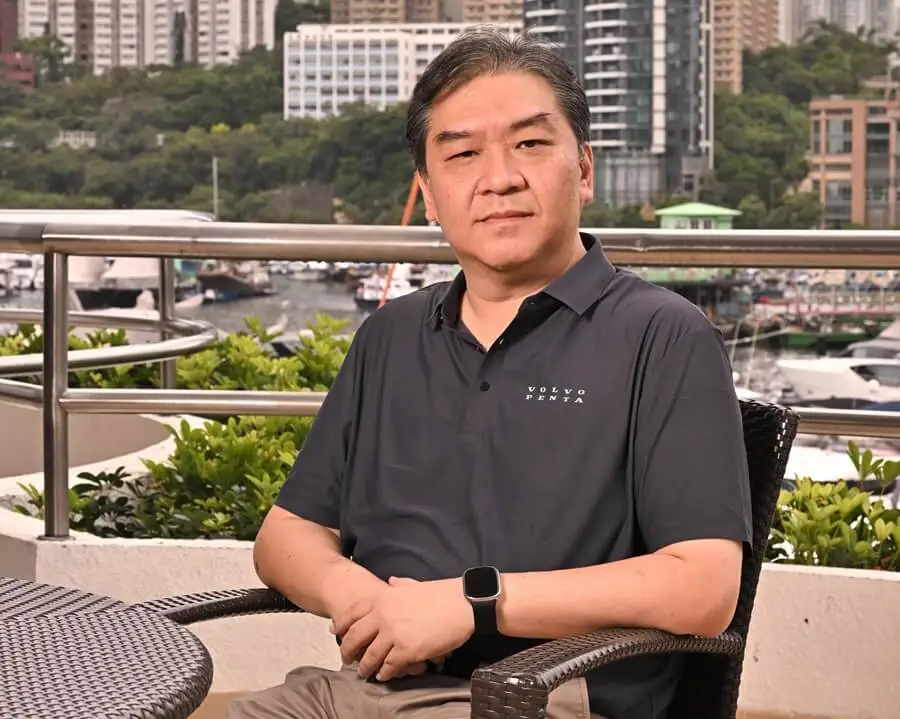
Based in Shanghai, Sunny Leung, Head of Volvo Penta China, recently addressed a room of 60 yachting-industry professionals and boat owners in Hong Kong on the latest developments by Volvo Penta, the lauded Swedish engine manufacturer. The presentation was pitched at dealerships, brokerages, service and maintenance yards, marinas and yachting association members.
Leung’s event and some meetings in Hong Kong were coordinated by Grandtech International Engineering, which was founded by Meme Poon and is the Hong Kong dealer for Volvo Penta China.
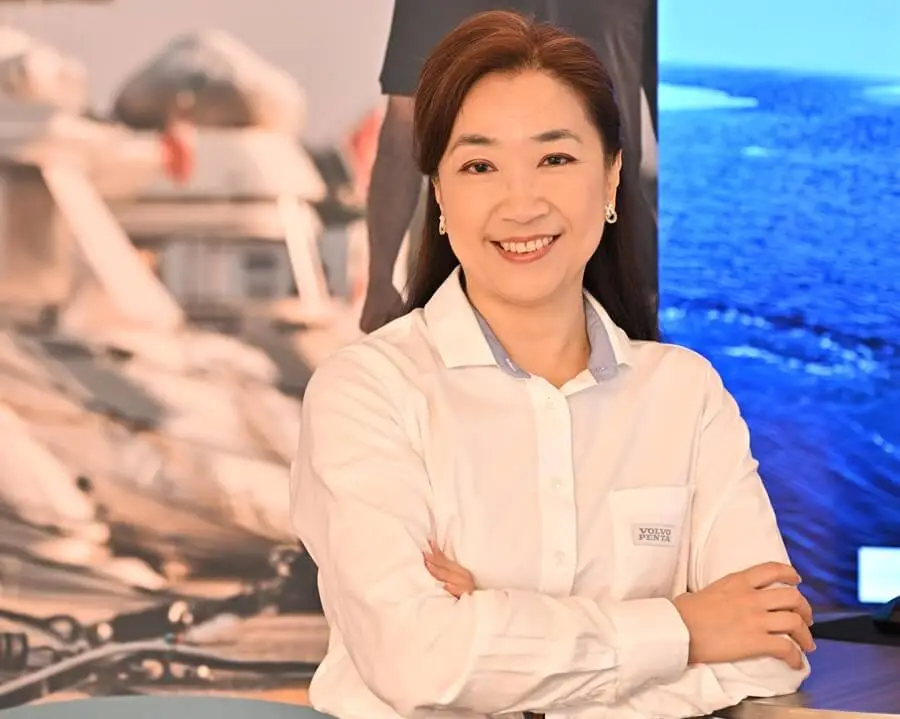
An animated speaker, Leung was back in his home town and used a combination of Cantonese and English to recap some of Volvo Penta’s history. The company launched its first Inboard Performance System (IPS) in 2005, squarely focused on use in leisure craft (the manufacturer went on to produce a commercial-vessel version, in smaller volume).
Last year, it started rolling out the IPS40 system, part of what it calls its professional platform, with smarter tech. Soon, it will be able to be hooked up to a user’s app to present control options and monitor that all’s well. The system is also usable with bio-fuel.
Read More: Grandtech’s Meme Poon: Heading Volvo Penta in Hong Kong
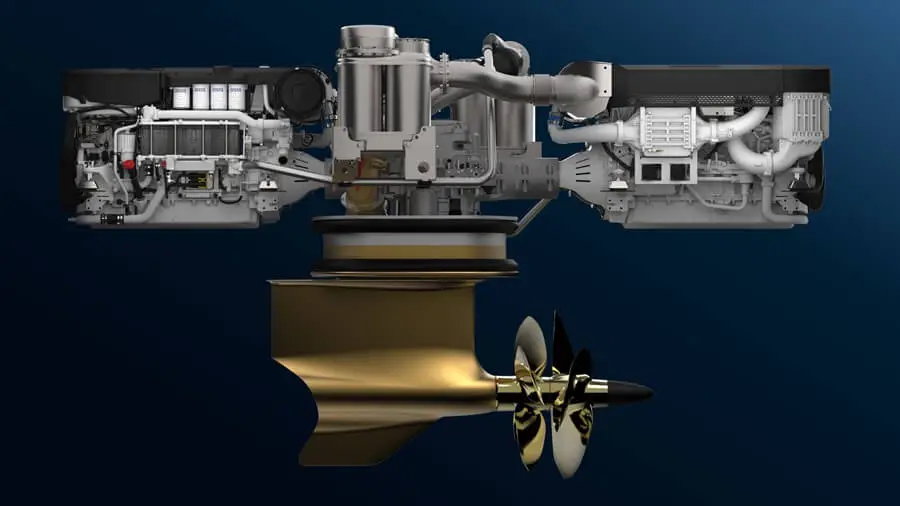
Next year the IPS40 begins a larger scale production, but preorders have filled its calendar to the extent that the first delivery year for Greater China is in 2026. That’s popularity.
Yacht Style sat down with Leung, who provided more insights into Volvo Penta and its IPS propulsion systems.
How would you describe your job in China, and how much of it relates to the IPS for leisure boating?
I’m responsible for Volvo Penta, China, which is supplying solutions for all power areas of Volvo including for OEMs [original equipment manufacturer for other brands] and lots of different customers, off-road vehicles, and systems for power generation. The IPS, though, has been a big growth area.
In leisure power boating, how do you view propulsion needs in Greater China, including Hong Kong?
Development in China is quite different from other markets in the Asia-Pacific area. We have a huge market. Volvo Penta has been in China for more than 20 years, and we have done extremely well in all our areas.
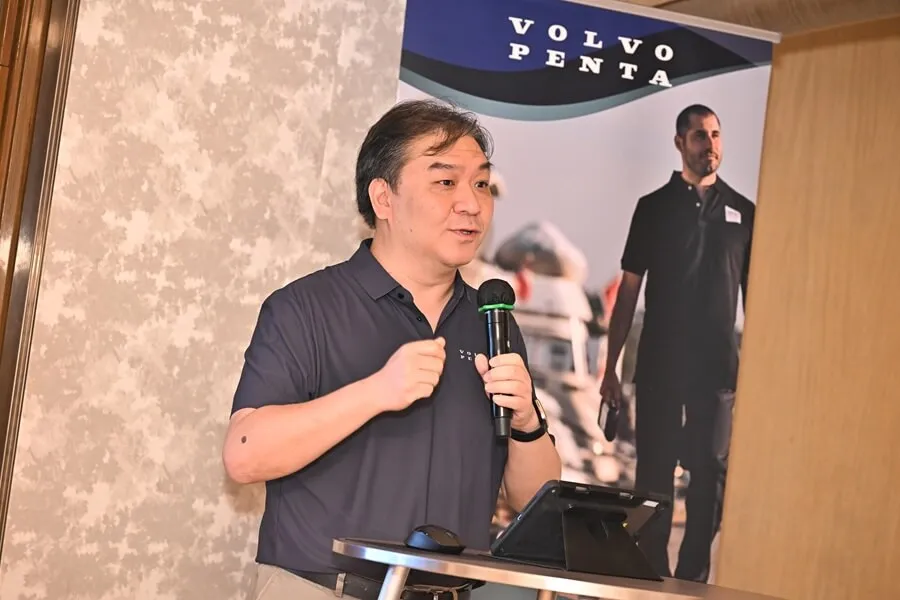
Our products are known as being very efficient, reliable and environmentally-friendly, and we always put safety as our number-one target. All these qualities are also at the heart of the IPS.
The new IPS40 is targeted at the pleasure-boat industry. What other aspects make it appealing and suited to this segment?
It’s a unique product. No one else is offering a product like it, with such current technology that can be used in diesel engines or hybrid power. Plus, the IPS40 offers a comfortable way of controlling the yacht, which is very different.
It’s being used by more and more [yacht] manufacturers all over the world – particularly in the European and American markets, because of its easy manoeuvrability and low fuel consumption.
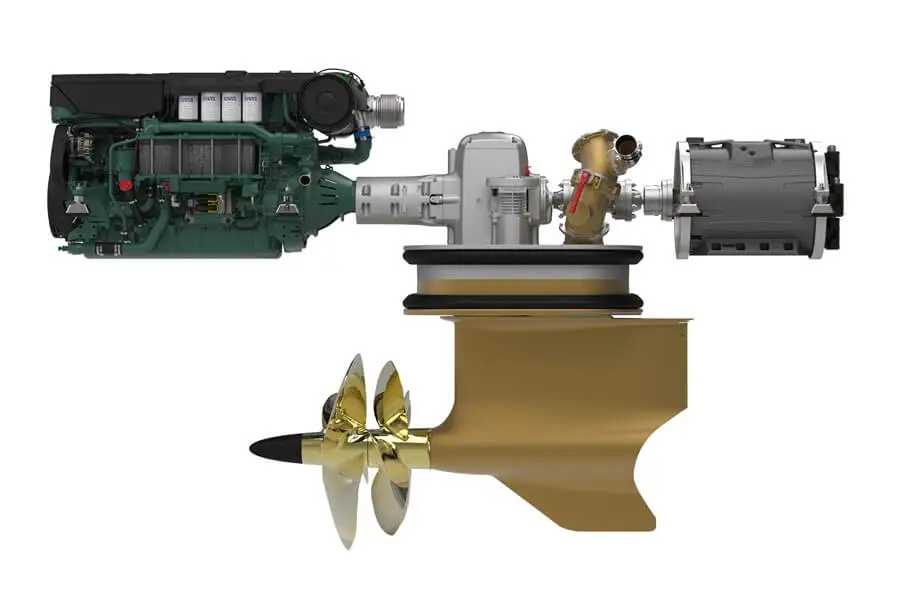
Are you happy with the service providers in Hong Kong and mainland China?
The customers seem to like the way that we actively serve them and deal with their requests, and we only use very reliable service providers.
Talking about what the customer wants, are you moving towards boat owners using more electronic power mobility or propulsion?
Yes, we have done this for a while, with other Penta systems in other industries we work with, like mining and power generation, where we already use electronic power mobility.
For yachts, we need to look at the actual situation of the market. So, in Hong Kong, customers would need to have more availability of electric charging points or hydrogen-refuelling access at jetties or piers for us to be able to move more in that direction. With our IPS right now, it’s easier for the customer to change from a diesel to a hybrid.
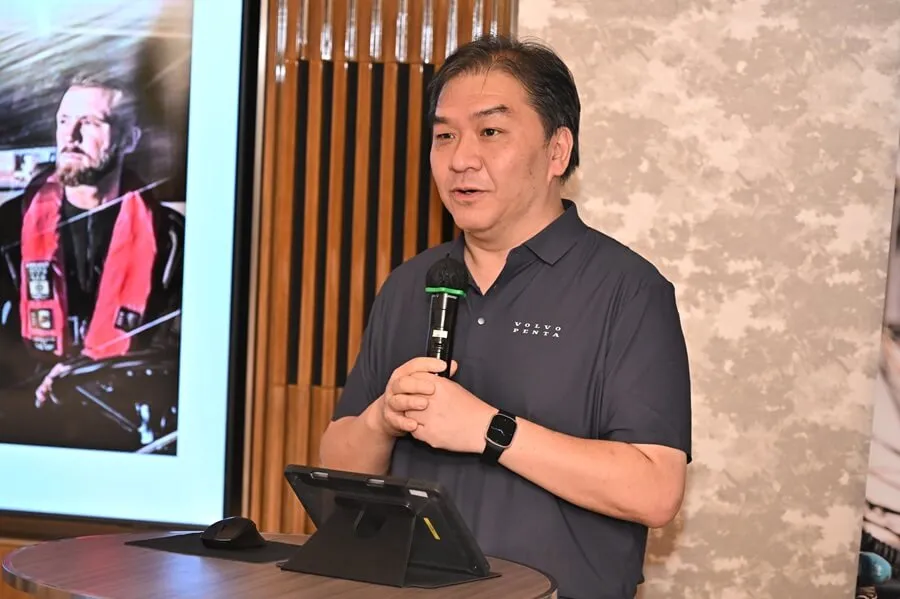
In five years or so we will offer more hydrogen- or methanol-powered systems, with a diesel mix. As governments take step-by-step approaches to reduce emissions in power generation, we hope to work with them together to ready the infrastructure, moving in step with that to offer new solutions in the next two years.
As the ‘China Five’ plans [for increasing renewable energy every five years] are happening, we expect Hong Kong will follow the same path. We already have a product development team in [mainland China] for this. For short-distance boats, the infrastructure should be ready there in 10 years. We expect hybrid, hydrogen and methanol will be more dominant in 10 years’ time.
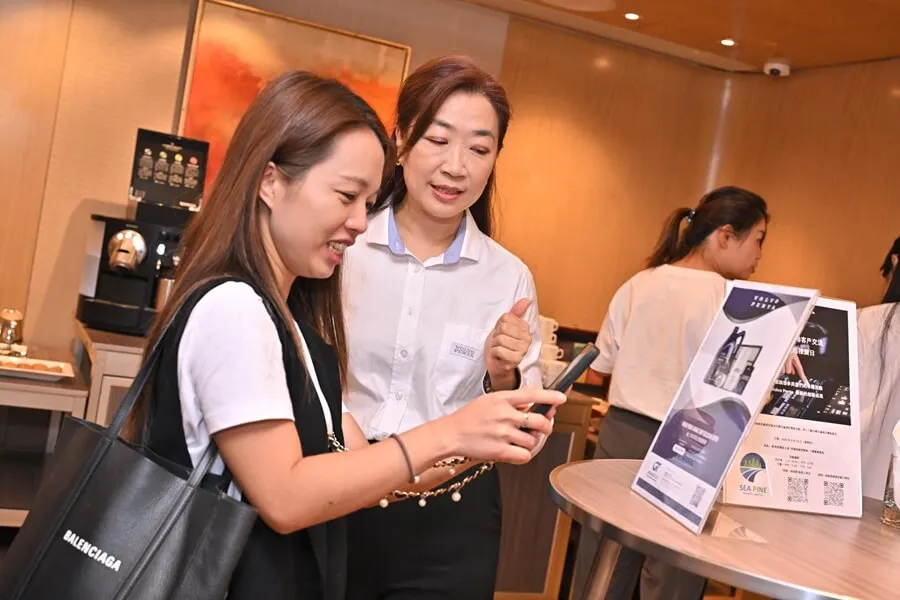
Do you have any further forecasts for your China markets?
We do believe that in the ‘Nine Plus Two’ (nine cities in southern China and the two Special Administrative Regions: Hong Kong and Macau), Hong Kong will become even more of a ‘yachting centre’ in the area, with its long experience in this and its European and international supply chain already set up.
Yachting is still growing slowly in mainland China, but we have increasing interest for Volvo Penta IPS from the south, especially in Hainan – and more widely across the country.
For more information visit grtech.com.hk
This article was first seen on YACHT STYLE.
For more on the latest in luxury yachting reads, click here.

